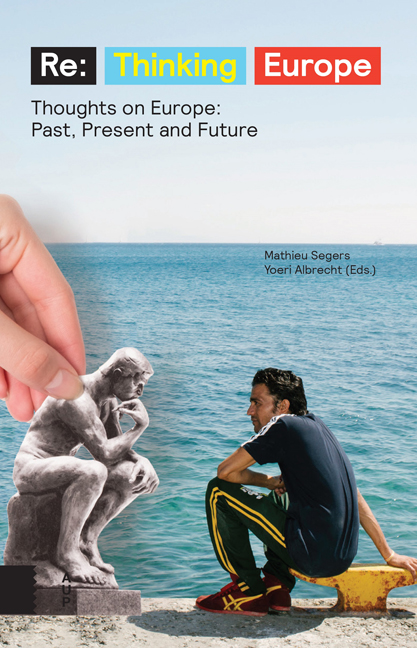My EUtopia: Empathy in a Union of Others
Published online by Cambridge University Press: 07 January 2021
Summary
There are stories one remembers till the end. Stanley Hoffmann, renowned Franco-American political scientist and a friend, died recently. He passed on many stories but one stands out in my memory that serves as a retrospective beacon, a story illuminating our future in spite of our present European predicament. In the story, Stanley is fifteen and hiding with his mother in Lamalou-les-Bains, a charming village at the foot of rolling hills in the south of France. The village is occupied by German soldiers, most of whom are barely older than him by the end of the war. In the story, Stanley and his mother, originally Austrian Jews and the only ones in the village to understand German, manage to listen to their occupants as they open letters from home, letters full of catastrophic news of bombardments and death. And so Stanley and his mother pass on the message to the villagers, that in truth the boys in Nazi uniforms are malheureux comme des pierres (as sad as stones), and the villagers in turn send instructions to their sons in the maquis of the surrounding hills not to shoot. When the village was liberated in 1945, he recalls, not one drop of blood was shed. It was not like this everywhere.
Can this testimony inspire new generations who witness their own wars and atrocities, to believe in the possibility of a more ethical world – malgré tout? Can we not together project ourselves back to the numerous pockets of deep humanity that were left even at the end of such an atrocious war (are they not all?!) and to these ineffable attitudes that made reconciliation possible after the war? And if we do, can we not share Stanley’s gaze and suppose that the European Union was made possible, at least initially, from sparks like these? Ripples of empathy in the mist of Inferno.
Like other intellectuals who grew up in wartime, Stanley spent his life trying to understand a century which witnessed in its first half a collapse of all the restraints put on war in previous centuries, and in its second half a frantic search for new more drastic restraints.
- Type
- Chapter
- Information
- ReThinking Europe Thoughts on Europe: Past, Present and Future, pp. 133 - 154Publisher: Amsterdam University PressPrint publication year: 2016
- 1
- Cited by

